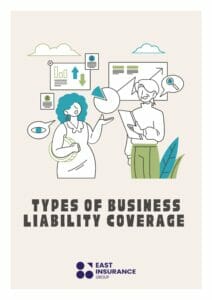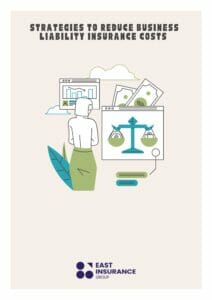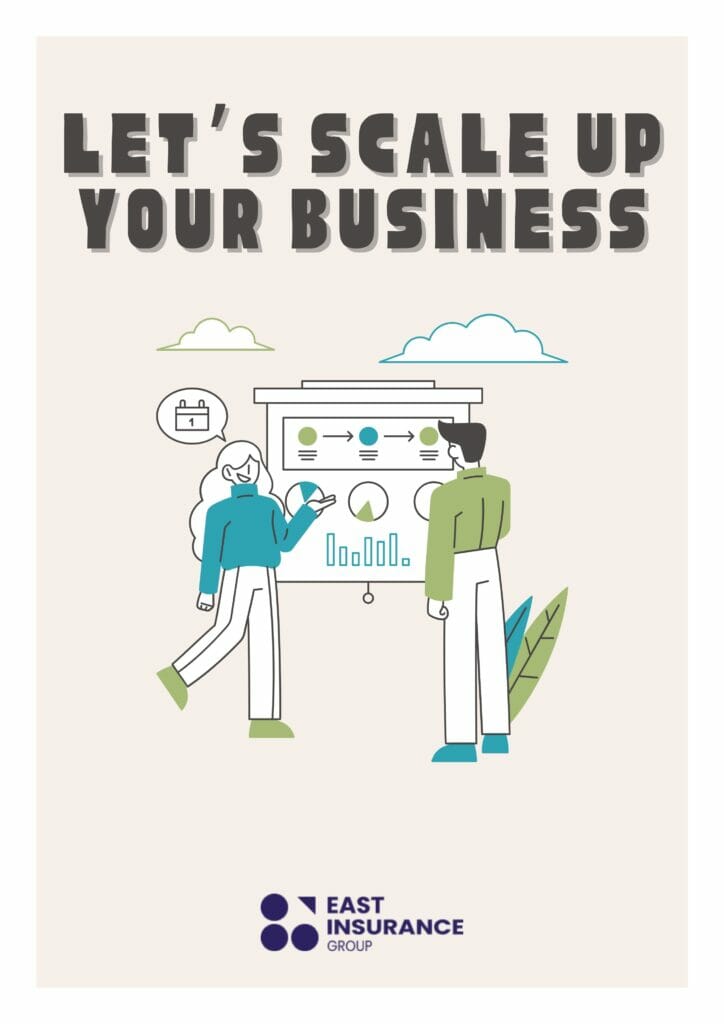What is Business Insurance?
Starting a new business is an exciting endeavor, full of promise and potential. However, it’s also a journey fraught with risks and uncertainties. To navigate these challenges and protect your business’s future, one essential step is to secure liability insurance.
Business liability insurance is a type of coverage that protects businesses from potential financial risks and liabilities resulting from accidents, injuries, and other unforeseen incidents. It covers costs related to lawsuits, settlements, medical expenses, and other damages that your business might be legally responsible for. Without proper coverage, these expenses could potentially lead to significant financial losses or even bankruptcy.
Beyond financial security, liability insurance helps establish your business’s credibility and trustworthiness. It demonstrates a commitment to professionalism and responsibility, which can be a compelling factor for clients, partners, and investors.
In many cases, liability insurance isn’t just advisable; it’s mandatory. Contracts and agreements with clients or suppliers may stipulate the need for liability coverage, making it an essential requirement for business operations.
The world of entrepreneurship is filled with unexpected twists and turns. Accidents and unforeseen events can happen at any time. Liability insurance ensures that your business can weather these storms, providing the resources needed to address and resolve issues promptly.
Starting and running a business is a demanding endeavor. The assurance of liability insurance can provide peace of mind, allowing you to focus on growth and success without the constant worry of potential liabilities. In essence, liability insurance isn’t just an expense; it’s an investment in the stability and resilience of your business.
Here are the top 10 reasons why you need liability insurance when starting a business:
- Legal Protection: Liability insurance shields your business from costly legal expenses in case of lawsuits or liability claims.
- Financial Security: It provides financial coverage for settlements, judgments, and legal defense, protecting your assets and business finances.
- Customer Trust: Having liability insurance demonstrates professionalism and reliability, building trust with clients and partners.
- Contract Compliance: Many contracts and agreements with clients or vendors may require liability insurance as a condition.
- Accidents Happen: Accidents, injuries, or property damage can occur unexpectedly, and liability insurance covers these incidents.
- Regulatory Compliance: Some industries and states have legal requirements mandating liability insurance, so it keeps your business compliant.
- Business Continuity: It helps ensure your business can continue operations after a liability incident by covering related costs.
- Reputation Management: A liability insurance policy can safeguard your business’s reputation by addressing claims promptly.
- Peace of Mind: Knowing you’re protected from unexpected liabilities allows you to focus on growing your business without constant worry.
- Competitive Edge: Liability insurance can give your business a competitive advantage by making it more appealing to clients and investors.
These reasons highlight the importance of liability insurance in safeguarding your business and its future.
Types of Business Liability Coverage
When it comes to business liability insurance, there are various types of coverages available. These include:

- General Liability Insurance: This is a fundamental coverage that every business should consider. It protects against costs related to property damage, bodily injury, and legal expenses arising from these incidents.
- Professional Liability Insurance: Also known as errors and omissions (E&O;) insurance, this coverage is specifically designed for professionals who provide advice or services. It protects against claims of negligence, poor workmanship, or mistakes in service delivery.
- Workers’ Compensation Insurance: This is a mandatory insurance in most states for businesses with employees. It covers medical expenses and lost wages for employees who get injured or fall ill due to work-related activities.
- Commercial Property Insurance: This coverage protects your business property, including buildings, equipment, inventory, and other physical assets, from damage due to events like fire, theft, or natural disasters.
- Commercial Auto Insurance: If your business owns or uses vehicles for business purposes, commercial auto insurance is crucial. It covers damage and liability costs resulting from accidents involving business-owned vehicles.
- Cyber Liability Insurance: With the rising cases of cyber-attacks and data breaches, businesses dealing with sensitive customer data should consider this coverage. It protects against costs related to data breaches, including notification costs, credit monitoring services, and legal fees.
Factors Influencing Business Liability Insurance Cost
The cost of business liability insurance varies significantly depending on several factors. These include: - Business Type: Riskier businesses like construction or engineering firms tend to pay more for insurance compared to low-risk businesses like retail stores or consultancy firms.
- Number of Employees: The more employees you have, the higher your insurance costs. This is because having more employees increases the likelihood of incidents that could result in insurance claims.
- Business Location: The cost of insurance can vary based on your business location. Businesses located in areas with higher crime rates or densely populated regions may have higher insurance costs due to increased risk.
- Claims History: If you’ve had previous claims, your insurance costs may be higher. Insurers see a history of claims as a sign of increased risk.
- Coverage Limits: The higher your coverage limits, the more protection you have. However, higher limits also mean higher insurance premiums.
How Business Insurance Premiums Are Calculated
Insurance companies calculate business liability insurance premiums based on a combination of factors. These include the type of business, the number of employees, the business location, the business’s claims history, and the coverage limits selected.
The insurer assesses these factors to determine the likelihood of a claim being made and the potential cost of that claim. The higher the perceived risk, the higher the premium will be.
Cost of Business Insurance by Profession
The cost of business liability insurance can differ significantly based on the profession or industry. For instance, professions that involve a higher level of risk, like construction or engineering, may face higher insurance costs than those in less risky professions like consultancy or retail.
Impact of Policy Limits on Insurance Cost
Policy limits play a crucial role in determining the cost of business liability insurance. A policy with higher limits offers more financial protection but comes with higher premiums. On the other hand, a policy with lower limits may have lower premiums but may not offer adequate coverage in the event of a significant claim.
Strategies to Reduce Business Insurance Costs

While business liability insurance is a necessary expense, there are ways to lower the cost:
- Implement Safety Measures: A robust safety and training program can help reduce the likelihood of accidents and claims, which can lower your insurance costs.
- Choose Appropriate Coverage Limits: While it’s important to have sufficient coverage, avoid over-insuring. Choose limits that provide adequate protection without unnecessary costs.
- Bundle Policies: Many insurance providers offer discounts for bundling multiple policies. Consider combining your general liability with other coverages like commercial property or professional liability insurance for potential savings.
Getting the Most Affordable Business Insurance
Finding the most affordable business liability insurance involves understanding your business’s specific needs and shopping around for the best rates. Always weigh the cost against the coverage to ensure you’re adequately protected without overpaying.
Average Cost of Small Business Insurance
The average cost of small business insurance varies depending on the type of coverage, the risk level of your business, and other factors. It’s important to research and compare quotes from different insurance providers to get a clear understanding of the expected costs.
Conclusion
Business liability insurance is a crucial part of starting and running a business. While it may seem like an added expense, the cost of not having adequate coverage can be far greater. Understanding the factors that influence the cost and how to manage them can help you secure the best coverage for your business at an affordable rate.

